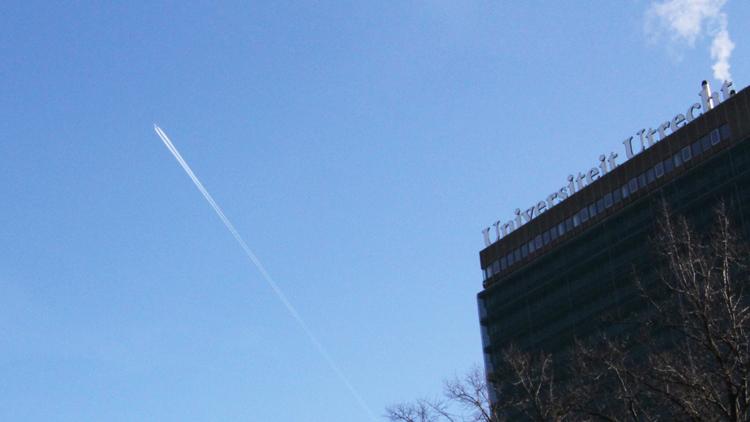High costs no longer a valid argument
Going to a conference less than 700 kilometres away? You'll take the train

From January 1 on, journeys of less than 700 kilometres or that take less than eight hours will have to be made by train rather than a plane ticket. The announcement, made by the Executive Board, marks a tightening of previous rules on travelling: up until now, employees were only "encouraged" to take the train.
Permission to travel by plane can only be granted by managers in exceptional circumstances. Employees cannot argue that travelling by train costs more.
A thousand times around the earth
The Executive Board stresses the importance of travelling sustainably if the university is to achieve its goal of being climate-neutral by 2030. Previous reports showed that, combined, UU employees traveled over a thousand times around the Earth before Covid. Those journeys made up 11 percent of the university’s CO2 emissions.
As a result, employees should be encouraged to take the train for distances longer than 700 kilometres or choose another means of transportation that is less polluting. Any overnight stays should be compensated.
Travelling less
But making sure that staff travels more sustainably is not the only goal behind this announcement. The idea is to travel less in general. The Executive Board says that the Covid lockdowns have evidenced that traveling isn’t always necessary to foster international collaborations. Moreover, the university has invested a lot over the past few years to make its classrooms and meeting rooms suited for virtual meetings.
Those who do end up flying will have to do so as efficiently as possible by taking direct flights, using reliable airlines, and compensating CO2 emissions.
Adjusting policy
Tightening the travel policy means some things will have to be adjusted, the Executive Board warns in a memo to the University Council (only accessible with a Solis ID, Ed.). Requests for project funding often don’t take into account additional travel expenses or accommodations. That should change in the future.
To cover the additional costs for transportation, faculties had the option to apply for a 5,000-euro reimbursement from a central encouragement fund. That fund will come to an end now. The new policy should find support throughout the organisation, according to the board.
As exact data is unavailable right now, UU does not want to set up a clear goal when it comes to reducing the number of flights. They intend to do so next year when they will have a better picture of the travel behaviour of UU's employees.
Early next year, UU will start a campaign called "Right on track" to raise awareness of the sustainable travel policy. They will drive attention to the "train zone map" developed by UU and used by many other universities. This map shows distances, travel times, and how much CO2 one is saving.